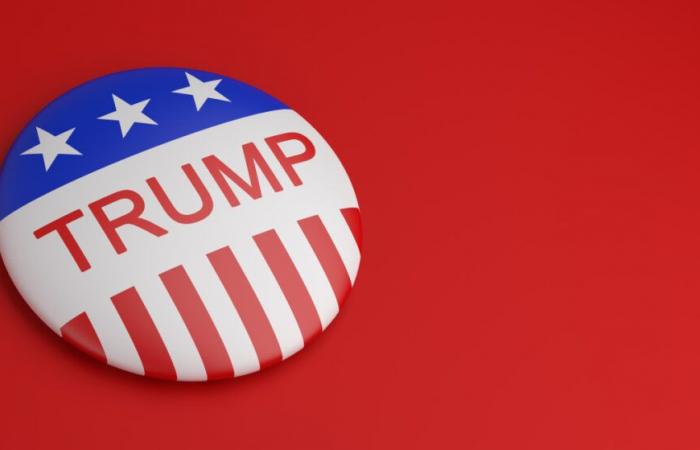At the age of 78, after several legal proceedings, trials, impeachment attempts and even assassination, Donald Trump managed to win the presidential election in the United States. Cleverly playing on discontent with inflation, even though the job market is doing well, wages are increasing and growth has returned, he tirelessly pointed to Joe Biden and Kamala Harris as responsible for all the problems facing American households. . But structural economic problems were hardly addressed during this electoral campaign. Trump was content to hammer home his desire to lower taxes, while Harris envisaged new aid, mainly aimed at the middle classes. Not a word about public finances, which are nevertheless in a pitiful state! Just an incantation from the future vice-president, JD Vance: “ We have made the greatest political comeback in American history, we are going to make the greatest economic comeback ».
The twin deficits in the United States
While a hard landing for the American economy was predicted, it came out of the turbulence linked to the pandemic well. The performances were even much better than anticipated. The budgetary impulse decided by the Biden administration strongly contributed to this, in some ways extending the expansionary budgetary policy carried out by Trump during his first term. In other words, increases in public spending and tax cuts have continuously supported growth in the United States.
Inevitably, this drip of growth has continued to widen the public deficit, in a country which has long spent more than it has income. But, for several years, decisions seem to be made as if there were no longer any budgetary constraints, as demonstrated by the campaign promises of the two candidates. The worst is that the United States is also facing an abysmal deficit in its external balance, which led Trump to declare a trade war on China during his first term, extended by Joe Biden, and which the EU had finished by being the collateral victim.
35,800 billion in public debt
These twin deficits – trade balance and public balance – are financed essentially by debt, propelling in fact the public debt ratio at stratospheric levels: 124% of GDP in 2024 for 35,800 billion dollars of public debt stock! Worse, this ratio has been growing rapidly since the 2000s, when it only amounted to 60% of GDP.
Let us be clear: given the amounts involved, no State could have continued to go into debt in this way to finance its deficits, even with a very dynamic economy. The very high interest rates demanded by lenders on the financial markets would, in fact, have strangled the budget. This is precisely what happened in so many states: Greece, Argentina, Brazil… Nothing of the sort in the United States, where sovereign interest rates have certainly increased, mainly due to the uncertainty arising from the electoral campaign, but remain at bearable levels (4.3% on election day). Only the President of the Central Bank of the United States (Fed), Jay Powell, seemed to be concerned, at the start of the year, about the fact that “the US federal government is on an unsustainable fiscal trajectory “. Conversely, the former president of the institution, Janet Yellen, now Treasury Secretary in the Biden administration, considers the public debt under control. This is because, in addition to the dynamism of their economy, the United States has an omnipotent social and political tool: the dollar!
The exorbitant privilege of the dollar
Ce « exorbitant power of the dollar“, to use the words used in 1964 by the French Minister of Economy and Finance, Valéry Giscard d’Estaing, allows the United States to go into debt at disproportionate levels, since the securities are denominated in their own currency , the dollar. Better, it allowsin fineAmerican households to live structurally beyond their means, because investors around the world are ready to buy debt securities denominated in dollars, in particular the famous Treasury bills perceived as risk-free.
Given the current fiscal situation in the United States, talking about securities “without risks» is certainly daring, but what can we say about other regions of the world, the euro zone not even being capable of recurrently issuing common debt securities? The whole question then is to know to what extent the United States can use and abuse this exorbitant privilege of the dollar before triggering a major crisis. During this electoral campaign, Kamala Harris and Donald Trump will have shown that they are not afraid of dancing around a volcano, simply ignoring fundamental economic questions and making the budget a simple adjustment variable to their program…
Maddening!






